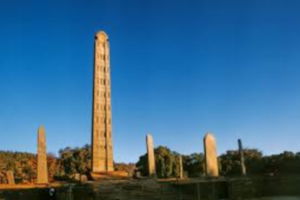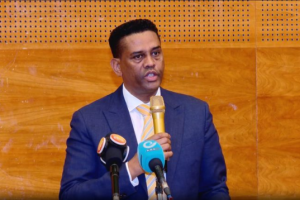BY GIRMACHEW GASHAW
As the saying goes ‘whoever belittles his neighbor lacks sense, but a man of understanding remains silent.’ Neighboring countries should never and ever be engaged in a war as no one gains benefit out of it. However, sometimes the situation could force one country to defend itself if the other side fails to understand its goodwill for peace and prosperity.
For peace would not come by the willingness of one party. It would rather require the commitment and willingness of two or three parties.
Home to a total population of 110 million people, Ethiopia is a sovereign country which has good geopolitical relations with its neighboring countries. Since the reform period, the country repeatedly expressed its keenness to forge ties with neighboring countries in many frontiers.
Particularly, Ethiopia and Sudan have been in excellent relations be it economically, socially or politically. The age-long and historical relations, as well as strategic partnership, have helped both sides to ensure lasting peace within their respective countries.
Apart from tied up culturally, the two countries shared borders of many kilometers. In short, the bond between them will never be cut even if their strategic enemies wish to create discords and ignite sponsored conflict between them.
Not far, emboldened by the third party and driven by other political motives, Sudanese military forces crossed the Ethiopian border and conducted offensive against Ethiopian farmers residing along the border.
Instead of taking tit-for-tat and immediate military measures, the Ethiopian government has been reaffirming peaceful resolution to the border tension and expressed its resolve to promote peace considering that war will not add an inch to the overall development of the two countries or the wider region.
East Africa experts who studied the age-long bilateral relations between Ethiopia and Sudan are supporting Ethiopia’s commitment to peaceful resolution of the matter.
Asst. Prof. Adem Kamil, who is an expert on Ethio-Arab countries’ relations, told The Ethiopian Herald that though there is a border dispute with Sudan, Ethiopians should not engage in war before exhaustively using all diplomatic options. Concerning the border issue, Ethiopia and Sudan have been making deliberations for the last 25 years. So, there is nothing pushing them to engage in border conflict.
The border issue should be solved through intensive dialogues. Colonial treaties and rulings on the demarcation points are not acceptable; the two countries should be able to solve border issues through dialogues. What should be clear to all is that the demarcation process will also take ample time, he stated.
“Sudan and Ethiopia have strong relation and their bond between them is unbreakable. We have many people affected by Sudanese aggression but we still prefer to resolve the issue peacefully.”
Many Sudanese people recognized Ethiopians considering its role played so far to protect its neighbor from being disintegrated like Libya, Syria and Yemen.
But some cliques in Sudanese army assumed that Ethiopia lost much of its weapons and got weakened due to the law enforcement operation against TPLF junta, as to him.
“Afterwards, Sudan has occupied Ethiopia’s land and displaced over 1,700 farmers from their villages. We have more than 2000 peacekeeping forces operating as peacekeeping missions in Africa, if we want to engage in war, with no doubt we can end it courageously.”
However he noted that “If Ethiopia is forced to engage in war, we can defend ourselves using military force as the sovereignty of the country should be protected.
If we want to interfere in their internal affairs, we can do so but it is not compulsory as we are neighboring countries that aspire to strengthen cooperation in many respects.”
Some Egyptians communicate with Sudan and try to conspire against Sudan and encroach on Benishangul-Gumuz of Ethiopia and impede the Grand Ethiopian Renaissance Dam (GERD). Sudan has been engaged in misguiding and misinforming the international community about the border issue in a blame shift, according to him.
“As Sudan and Egypt have tried to isolate Ethiopians in ethnicity and religion, we have to be careful from creating loopholes conducive to our strategic enemies to make their dream a reality.
We have to also assign vibrant diplomats who can speak Arabic language fluently. It is time to stand in unison. We need not label anyone as our enemy but we have to prepare ourselves to react to everything that happens around us.”
“We have to wake up. GERD is ours, it is not the issue left for the government alone, and it would rather be the property of over 110 million people which would bring citizens from the vicious cycle of poverty. Egypt is behind the border dispute between the two countries.”
On Tuesday Ministry of Foreign Affairs spokesperson Dina Mufti state that the government of Ethiopia has been consistent regarding the need to solve the Ethiopia-Sudan border dispute through negotiation.
We will negotiate with Sudan as long as it pulls back its troops out of Ethiopian territories it has occupied as of November 06, 2020.
“We urge the international community to continue to pressure Sudan to act respecting international law and according to the provisions of the 1972 Notes it has exchanged with Ethiopia.”
Ethiopia believes in the AU-led dialogue over the Grand Renaissance Dam and hopes the negotiations will commence soon under DRC’s leadership said Dina adding that Ethiopia remains confident that the AU-led negotiation over the GERD is an ongoing process that will provide win-win solutions to the negotiating parties.
Concerns over the future course of the negotiations, such as the Quartet, have never been officially submitted to Ethiopia. The African Union-led negotiation should be finalized before any other option is pursued to solve outstanding issues among the tripartite regarding the GERD.
In this regard, In case any other option is deemed necessary, the issue shall be treated by pertinent provisions of the Tripartite Declaration of Principles on GERD, he added.
In the nutshell, Ethiopia and Sudan have no better option than cooperating with one another so as to register notable socioeconomic, political as well as cultural progresses. As a friend in need is a friend indeed, both sides should not forget the deeds at times of intricacy and resolve differences through roundtable discussions.
The Ethiopian Herald March 24/2021




